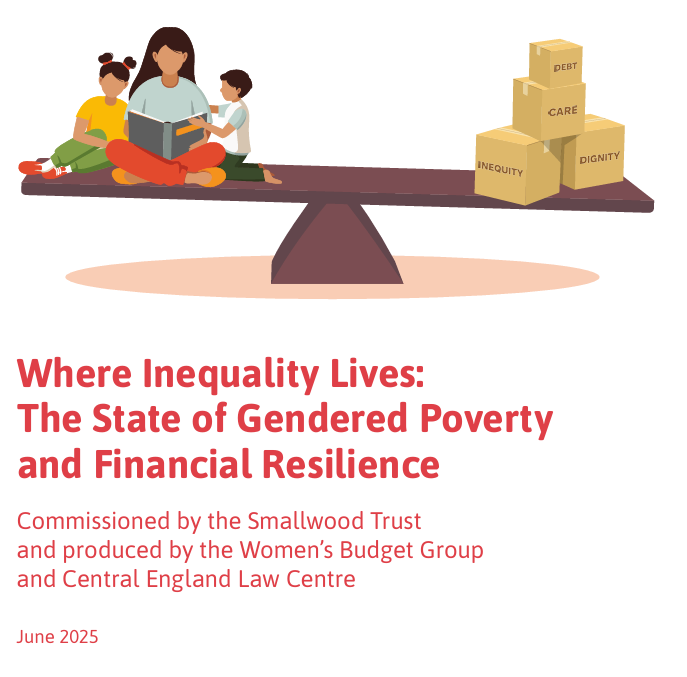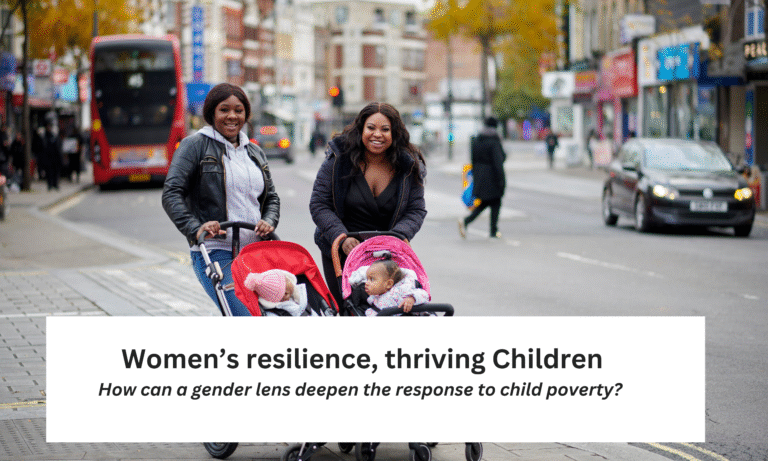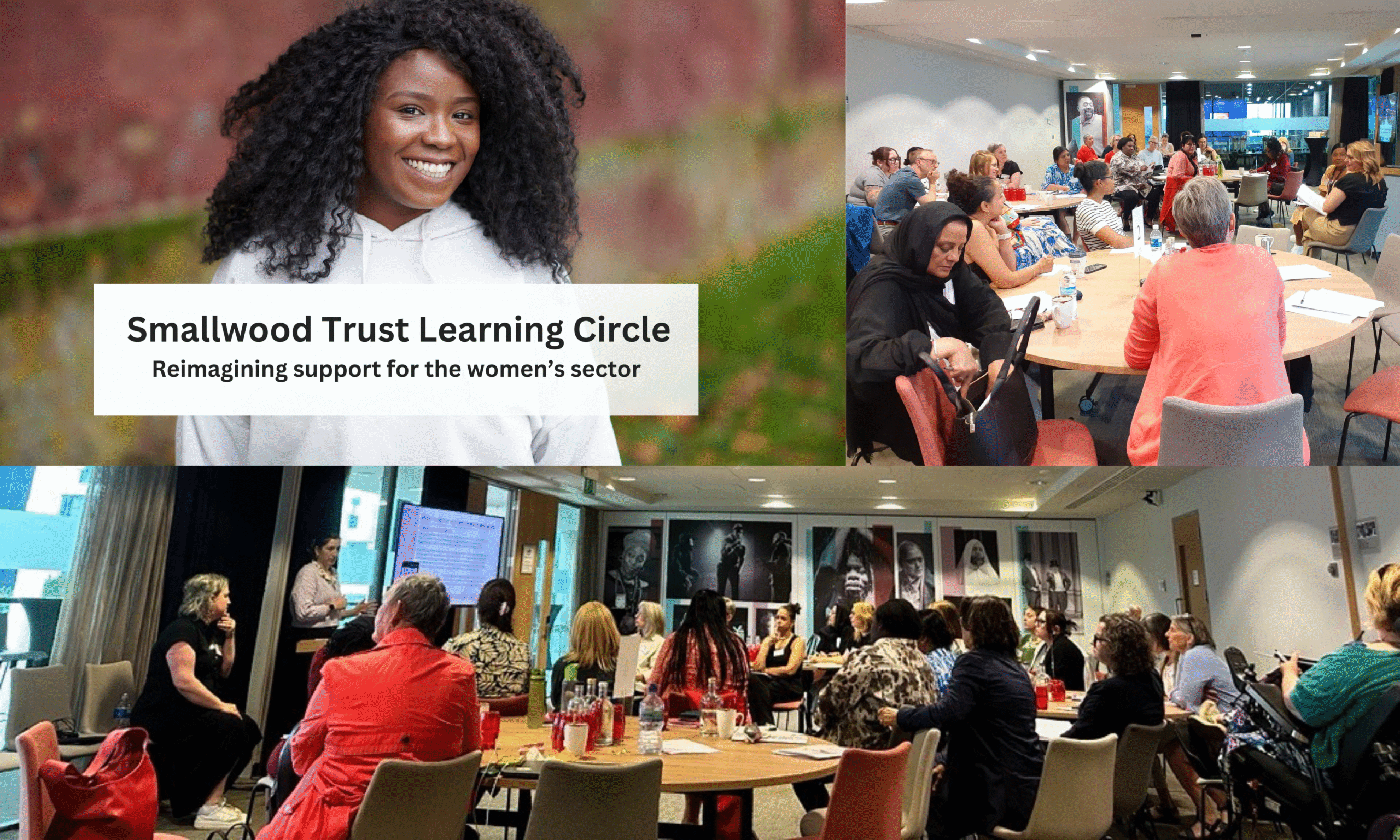
Presenting our latest report on the state of Gendered Poverty in 2025: Where Inequality Lives
July 21, 2025Commissioned by the Smallwood Trust and authored by the Women’s Budget Group and the Central England Law Centre, this report provides a comprehensive overview of the current state of Gendered Poverty in 2025.
To effectively support women out of poverty, we must first understand the complex barriers they face.Where Inequality Lives shines a vital light on these barriers, particularly for women with caring responsibilities, those in low-paid or insecure work, and those facing unsafe housing, discrimination, insecure immigration status, or additional challenges related to disability and race. It also highlights the indispensable role of specialist women’s organisations, especially those led by and for marginalised women, who are bridging the gaps where public systems fall short.
We launched the report on Tuesday, 15 July at our Learning Circle in Birmingham under the theme: “Life-saving but Underfunded: Reimagining Support for the Women’s Sector.”
In total, 28 organisations took part, including Women’s Budget Group, Central England Law Centre, ROSA UK, The National Lottery Community Fund, Pilgrim Trust, Trust for London, Women’s Resource Centre, Agenda Alliance, Women in Prison, Somali Women’s Group, Refugee Women Connect, The Women’s Organisation (The WO), Zinthiya Trust, Misgav, Arch Teesside, Hull Sisters, Sawa, Kirklees and Wakefield Advocacy and Community Care Centre (KAWACC), Connect North Korea, Women Acting in Today’s Society (WAITS Action), Women’s Workshop, Prison Advice and Care Trust, 4Wings, Support and Mentoring Enabling Entrepreneurship (SAMEE), Lancashire Women, Staffordshire Women’s Aid and Together Women.
This report builds on the findings of the Female Face of Poverty report from 2018, also commissioned by Smallwood. Seven years on, the landscape has worsened. Demand for support has increased, yet the women’s sector, mostly made up of frontline delivery organisations, continues to plug the gaps with fewer resources, absorbing the shock of deepening inequality.
Key Recommendations from the report
- Central Government
The report calls for central government to take coordinated, gender-responsive action. This includes ensuring the rollout of expanded childcare is adequately funded and staffed, and pushing for long-term reform to deliver universal, free early education and childcare. It also urges urgent investment and reform in social care, which disproportionately affects women as both providers and recipients. Policies to address gendered labour market inequalities, such as flexible working, parental leave reform, and closing the gender pay gap are also critical. The report calls for reform of the social security system, including abolishing the two-child limit and benefit cap, as well as increasing Local Housing Allowance. The work of the Child Poverty Task Force must include a gendered lens, particularly considering lone mothers. Finally, public service funding must be restored, especially at the local level, where women rely most on services and often fill gaps through unpaid care. - Local Government
Local authorities are urged to fully resource and deliver statutory services that women depend on, ranging from housing and social care to domestic violence support and youth services. Their ability to meet these obligations is heavily dependent on central government funding. The report highlights that devolution offers an opportunity to better respond to local needs, but warns that local plans to tackle economic inactivity must include a gender focus, addressing barriers such as caring responsibilities and ill health that disproportionately affect women. - Policy Design and Equality Duties
Public bodies must improve how they integrate gender analysis into policy design. The use of Equality Impact Assessments (EIAs), a legal requirement under the Public Sector Equality Duty, remains inconsistent and often lacking in transparency. The report stresses that policies must be adjusted where potential harms are identified and recommends meaningful engagement with specialist women’s organisations who hold deep expertise on how policies affect the most marginalised. - Philanthropic and Statutory Funders
Funders play a vital role in sustaining the women’s sector, which is often a trusted point of contact for women excluded from statutory services. The report recommends more core and multi-year funding to allow organisations to stabilise, retain staff, and deliver consistently. Funders are also encouraged to support policy and advocacy work, helping organisations contribute evidence to government inquiries and consultations. Importantly, the report calls on funders to recognise intersectional inequalities and prioritise organisations working with specific marginalised groups, particularly at the local level.
As a specialist women’s funder, we hope this report strengthens the case for urgent and informed action among funders, policymakers and sector leaders.
Our thanks go to the Women’s Budget Group, Central England Law Centre and all those who joined us in this vital conversation.
Resources




